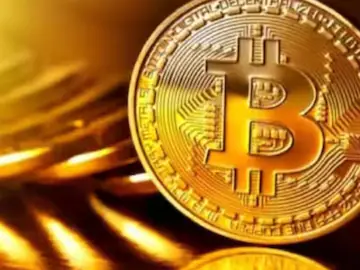Bitcoin Crosses $80,000: Why Are Cryptos Rising? Is It Legal in India, How to Invest?

Bitcoin has surged 80 per cent this year and 30 per cent since Trump’s victory, surpassing equities and bullion gains. For those looking to invest, this represents a significant opportunity.
Surging after Donald Trump’s victory in the US presidential elections,
Bitcoin has touched an all-time high of $80,000. With this, the benchmark cryptocurrency has surged 80 per cent this year and 30 per cent since Trump’s victory, surpassing equities and bullion gains. Is it legal in India?
Why Are Cryptos Rising on Trump’s Win?
Bitcoin is the world’s largest cryptocurrency that skyrocketed in the run-up to US presidential election, rose sharply immediately on election night after it became clear Donald Trump would win and has continued rising in the days since his victory.
The crypto industry believes Trump’s victory is a bullish sign for bitcoin and other digital currencies. In August 2024, he said cryptocurrencies could “define the future”. The president-elect also proposed a strategic national bitcoin stockpile, akin to America’s strategic petroleum reserve, directly purchasing and in cryptocurrencies as a national security measure.
Elon Musk, one of Trump’s most visible and ardent supporters, is also a crypto bull. Musk’s favourite coin, Dogecoin, surged more than 20 per cent on Sunday and had been soaring all last week.
However, the Biden administration sought to rein in crypto.
Although Trump was once a bitcoin skeptic, he has changed his tone know to support it. In September, Trump and his children started a new crypto business called World Liberty Financial.
“It’s very young and very growing,” Trump said of the cryptocurrency industry on September 16 while unveiling World Liberty Financial. “I do believe in it.”
Large Investors’ Shift to Bitcoin. Will Bitcoin Rise Further?
“The election of Donald Trump as US President has lifted the regulatory weight from the industry. Since the November 5 election results, Bitcoin has gained over 30%, signalling a fresh wave of confidence among investors. We now have large institutional investors accumulating Bitcoin and offering it as an asset to customers in the form of exchange traded funds (ETFs), a positive regulatory environment and several innovative projects ready for take off. It’s the perfect set up for a bull cycle,” said Balaji Srihari, business head at CoinSwitch.
The trading volumes in Bitcoin have risen by 350 per cent within a week since the US election results, he said, adding that “current trends suggest that Bitcoin could not only hold its ground above $80,000 but also set the stage for even greater gains soon”. This is encouraging news for those looking to invest.
As the market gains momentum, it’s important for investors to stay vigilant and informed about factors that could influence price stability, he added.
Is Bitcoin Legal in India?
Yes, cryptocurrencies are legal in India in terms of holding and trading. While the Indian government has not banned cryptocurrencies outright, the regulatory framework is still evolving. Investors should fully understand these regulations before they invest.
In the Union Budget 2022, India introduced a 30 per cent tax on income from the transfer of cryptocurrencies and other virtual digital assets (VDAs). Additionally, a 1 per cent TDS is applied on on the sale of crypto assets more than Rs 50,000 (Rs 10,000 in certain cases) within a single financial year.
India has yet to implement a comprehensive regulatory framework for cryptocurrencies, although draft bills have been discussed in Parliament in the past.
Interestingly, the Reserve Bank of India (RBI) in 2022 launched a regulated Digital Rupee as a form of digital currency. The Digital Rupee is expected to provide a government-backed alternative to private cryptocurrencies.
How Can You Buy Cryptocurrency?
Investors can buy cryptocurrencies on popular crypto exchanges in India include WazirX, CoinSwitch Kuber, CoinDCX, and ZebPay. International platforms like Binance and Kraken also allow Indian users to trade, though they may have different onboarding processes.
All exchanges require Know Your Customer (KYC) verification to comply with regulations.



 English
English Hindi
Hindi Kannada
Kannada Malayalam
Malayalam Tamil
Tamil Telugu
Telugu












